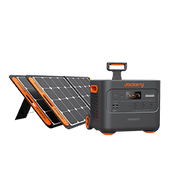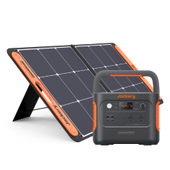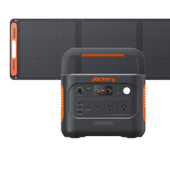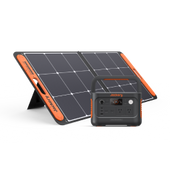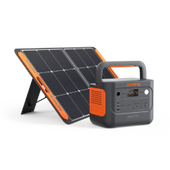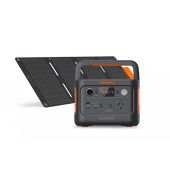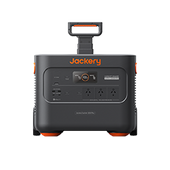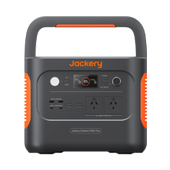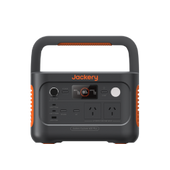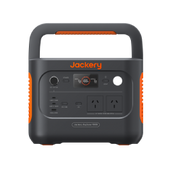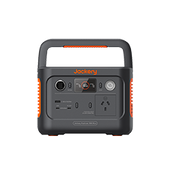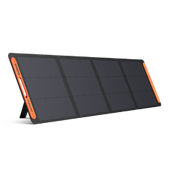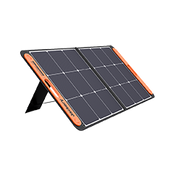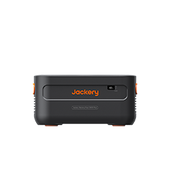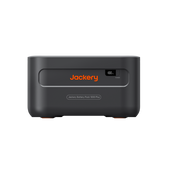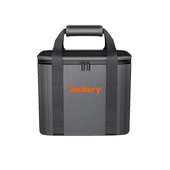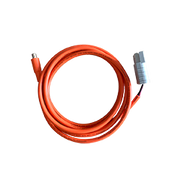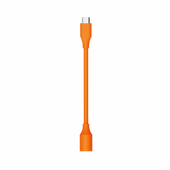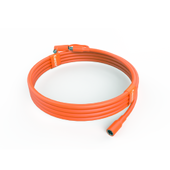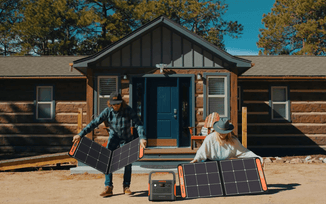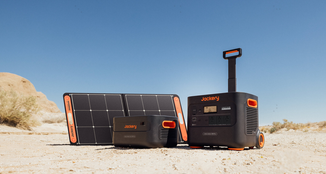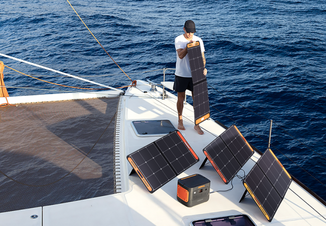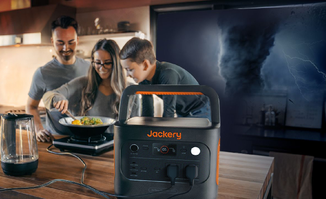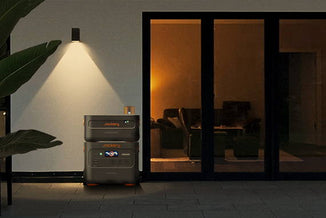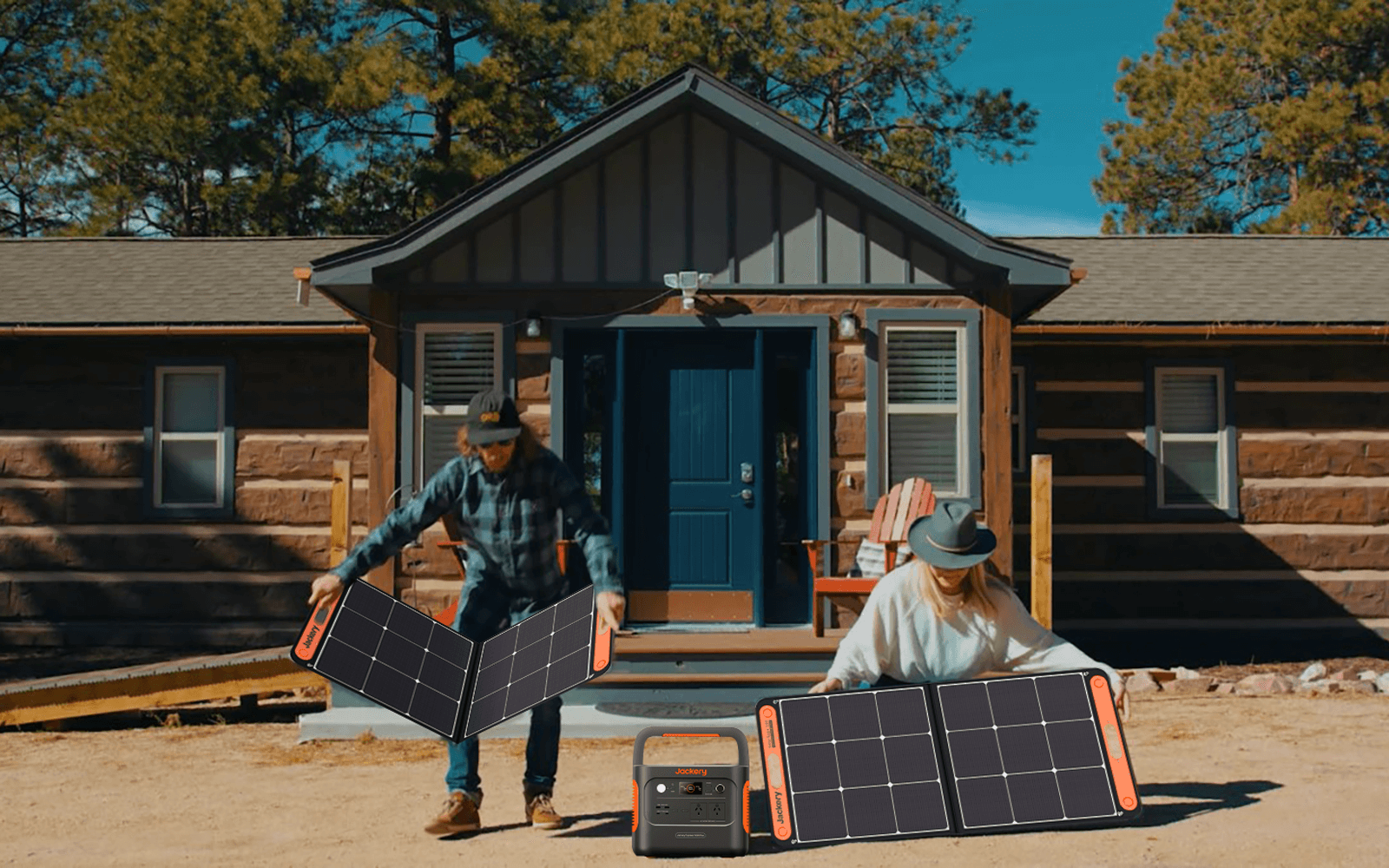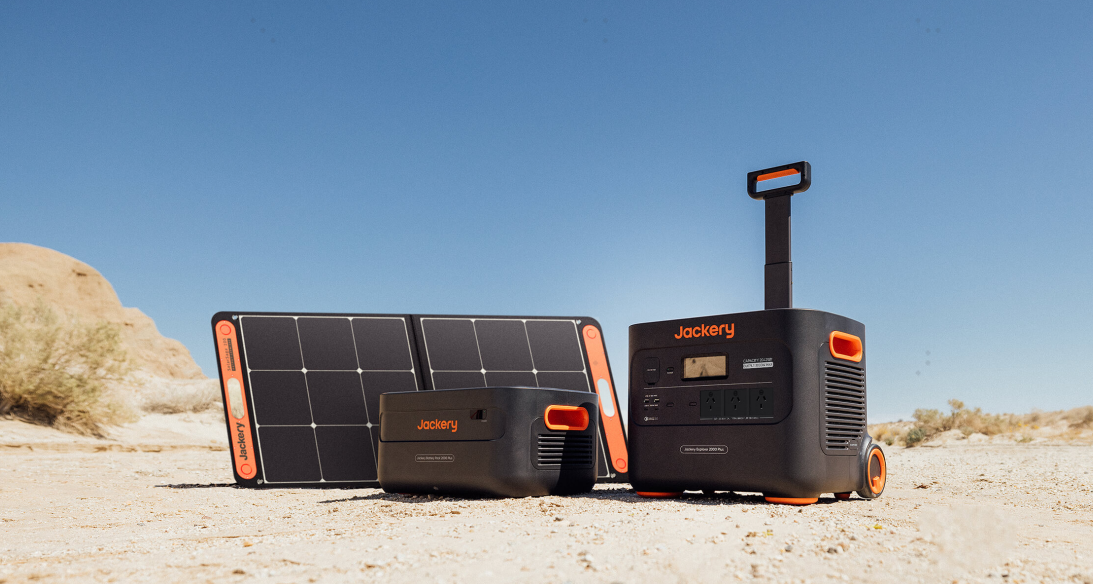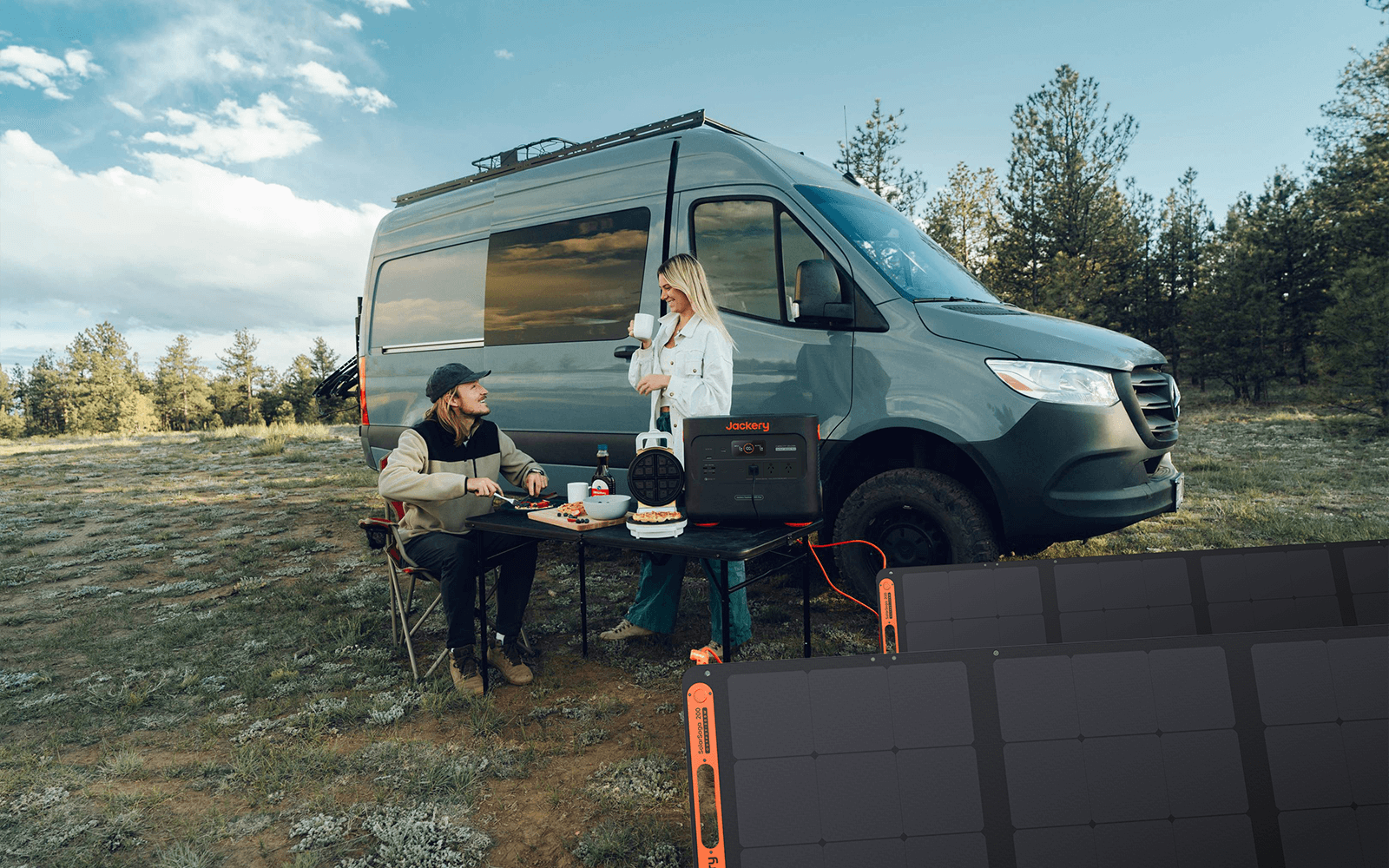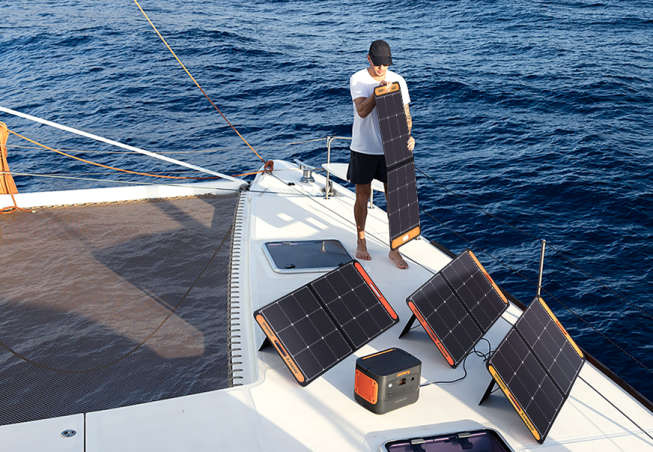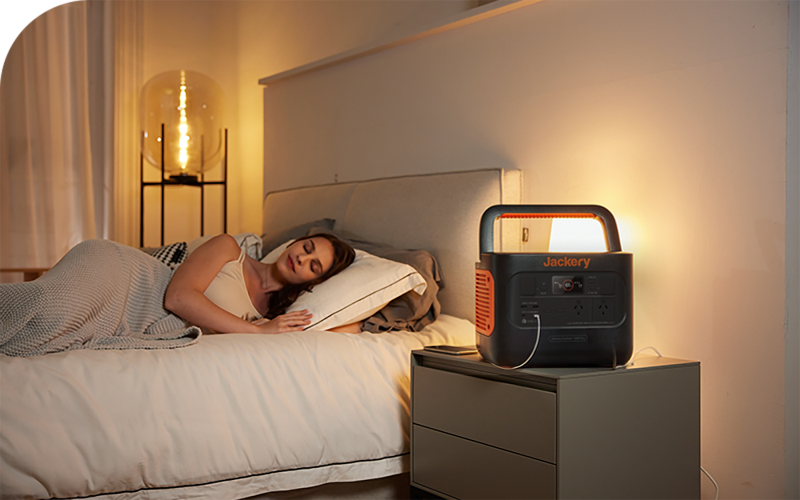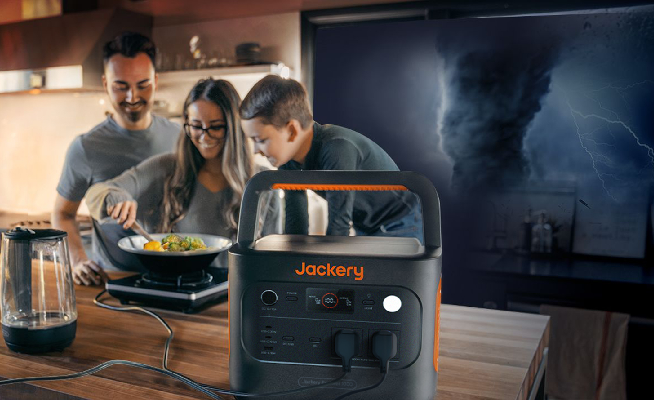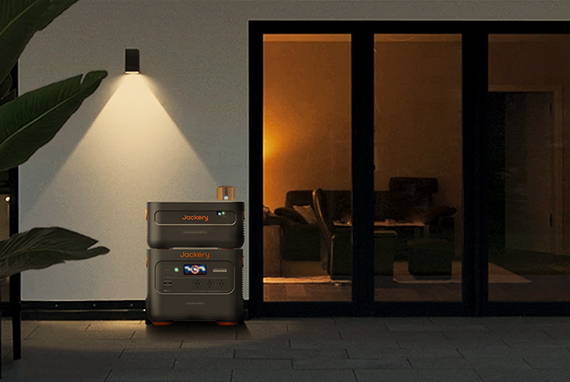Solar Powered TV: Can Solar Generator Run a TV
Solar Powered TV: Can Solar Generator Run a TV
It's simple to lose hours in front of the TV while trying to unwind, but if you're viewing at home, all that time can add up to a sizable electricity bill.
A TV uses 58.6 Wh when it is on and 0.5 Wh when in standby state on average per hour, and its average amp draw is 0.49 Ah. As a result, the monthly electric cost can reach $2.52.

Powering a TV using solar power can help reduce not only your carbon footprint but your electricity bill as well. Jackery solar generators come in different capacities and dimensions, suitable for all types of TVs. On this page, you will learn what solar-powered TV is, how it works, and can a solar generator run a TV.
What is Solar Powered TV
You can enjoy virtually endless off-grid, remote amusement with a solar-powered TV. The solar-powered TV is an easy-to-use, ready-to-use option. The TV is in the viewing area, and an appropriate outdoor location is chosen for the solar panel and intelligent antenna. The internal battery can be changed if required.
This makes the TV one of the significant energy users in your home. The more time we spend watching TV, our utility costs increase, especially in these difficult times. Many people are switching to solar-powered TVs to reduce expenses.
How Does A Solar Powered TV Work
While a solar panel generates DC, a television utilizes AC. You can harness the DC power generated by the solar cells to power the TV using solar energy.
Once you've gathered it, you can store this DC in a battery or an inverter, automatically converting the power from DC to AC, enabling you to run all your domestic appliances. One method of powering your TV or other solar-powered equipment is to convert DC to AC.

Solar Powered TV VS. Solar Generator for TV
The typical American consumes 3–4 hours of TV daily; if you binge-watch on streaming, that number is likely much higher. Since its creation, the TV has enriched our lives and is now regarded as a necessity.
A 150W solar screen can power a 50-inch TV for 4–5 hours per day when used as a solar-powered TV.
You can extend the time you can watch TV on solar power by several hours by adding a 50Ah battery and inverter to the setup.
However, solar cells might not function on cloudy or nighttime days. Solar generators provide another way to power a TV, keeping you powered even at night, during rainy weather, or on cloudy days with their fully charged portable power stations. Additionally, it allows charging via your outlet, garage, and solar panels.
Types
Pros
Cons
Solar Powered TV
- Clean energy
- Save electricity bills
- Using during blackouts
- Suitable for off-grid-living
- Not work better on rainy or cloudy days
- Need installation
- Need battery
- Need inverter
- Need maintenance
- Require TV to be compatible with solar power
Solar Generator for TV
- Allows you to charge TV any time anywhere,
- Portable, easy to carry
- Power even at night, on rainy or cloudy days from its fully charged portable power station
- Pass through charging
- Multiple recharging methods
- Combine solar panels with power stations
- No maintenance costs
- Some solar generators with large capacities may cost a lot
Solar Powered TV
A TV can now be powered by solar energy without an off-grid power source. You'll need solar panels and a few other tools to power your TV with solar energy. However, you must first make sure that your TV is compatible with solar electricity before you start using it for your TV.
Due to the quick advancement of technology, it is now possible to find TVs that directly utilize the sun's power through integrated solar panels. These TVs are specifically made to assist customers in reducing their utility costs. In general, solar-powered TVs typically have a DC fan that is powered solely by the sun.
Solar Generator for TV
Portable solar generators can power a variety of appliances both inside and outside the house. It converts solar power into electricity and stores the energy for later use. Thanks to this, you can still enjoy off-grid living, camping, outdoor activities, or even when you are not linked to the electrical grid.

The solar generator is the best option for charging TVs and other appliances, unlike solar-powered TVs requiring installation, the right equipment (battery, inverter), and maintenance.
It is a clean energy source, economical, and appropriate for backup power, off-grid living, camping, and more.
For example, Jackery Solar Generator 1000 Pro is best for charging a 60W TV for about 13 hours, which means you could be the couch potato for half of the day. Also, you can select Solar Generator 500, one of the market's most compact and lightweight rechargeable lithium battery generators.
How Many Watts Does A TV Use
How Much Solar Power Need to Run A TV
LCD TV
Watts Per Hour
LED TV
Watts Per Hour
Solar Power Needed
32 Inch
24W-72W
32 Inch
20W-60W
80W-90W
42 Inch
72W
42 Inch
60W
80W-90W
46 Inch
72W-84W
46 Inch
60W-70W
100W
50 Inch
102W
50 Inch
85W
150W
65 Inch
146W-156W
65 Inch
120W-130W
200W
82 Inch
276W-360W
82 Inch
230W-300W
400-500W
Can A Solar Generator Run A TV

Series
Capacity
Ports
TV Watts
Hours
2160Wh
2*AC Output: 230V, 2200W (peak 4400W); 2*USB-A: Quick Charge 3.0x2, 18W Max; 2*USB-C: 100W Max, (5V, 9V, 15V, 12V, 20V up to 5A); 1*Carport: 12V⎓10A
32 Inch: 20W-60W
42 Inch: 60W
46 Inch: 60W-70W
50 Inch: 85W
65 Inch: 120W-130W
82 Inch: 230W-300W
32 Inch: 91.8H to 30.6H
42 Inch: 30.6H
46 Inch: 30.6H to 26.2H
50 Inch: 21.6H
65 Inch: 15.3H to 14.1H
82 Inch: 8H to 6.1H
1002Wh
2*AC Output: 230V, 1000W, peak 2000W; 2*USB-A: Quick Charge 3.0x2, 18W Max; 2*USB-C: 100W Max, (5V, 9V, 15V, 12V, 20V up to 5A); 1*Carport: 12V⎓10A
32 Inch: 20W-60W
42 Inch: 60W
46 Inch: 60W-70W
50 Inch: 85W
65 Inch: 120W-130W
82 Inch: 230W-300W
32 Inch: 42.6H to 14.2H
42 Inch: 14.2H
46 Inch: 14.2H to 12.2H
50 Inch: 10H
65 Inch: 7.1H to 6.6H
82 Inch: 3.7H to 2.8H
518Wh
1*AC Output: 240V, 500W (peak 1000W); 2*DC Output: 12V⎓7A; 3*USB-A: 5V⎓2.4A; 1*Carport: 12V⎓10A
32 Inch: 20W-60W
42 Inch: 60W
46 Inch: 60W-70W
50 Inch: 85W
65 Inch: 120W-130W
82 Inch: 230W-300W
32 Inch: 22H to 7.3H
42 Inch: 7.3H
46 Inch: 7.3H to 6.3H
50 Inch: 5.2H
65 Inch: 3.7H to 3.4H
82 Inch: 1.9H to 1.5H
Solar Powered TV FAQs
Final Thoughts
Best-selling Jackery Solar Generator
PAGE CONTENTS
New Arrival
Hurry up! Sale ends once the timer hits zero

